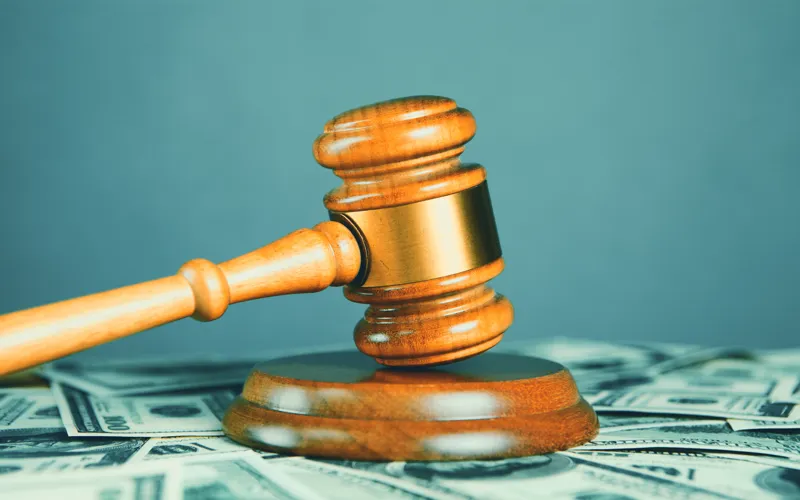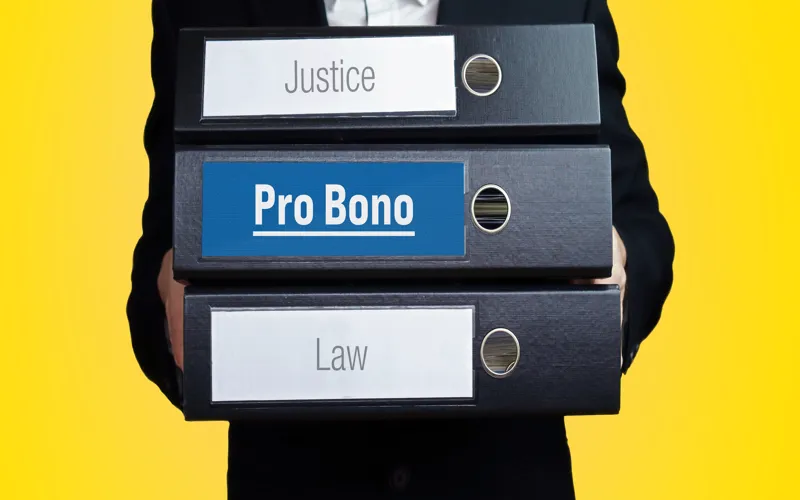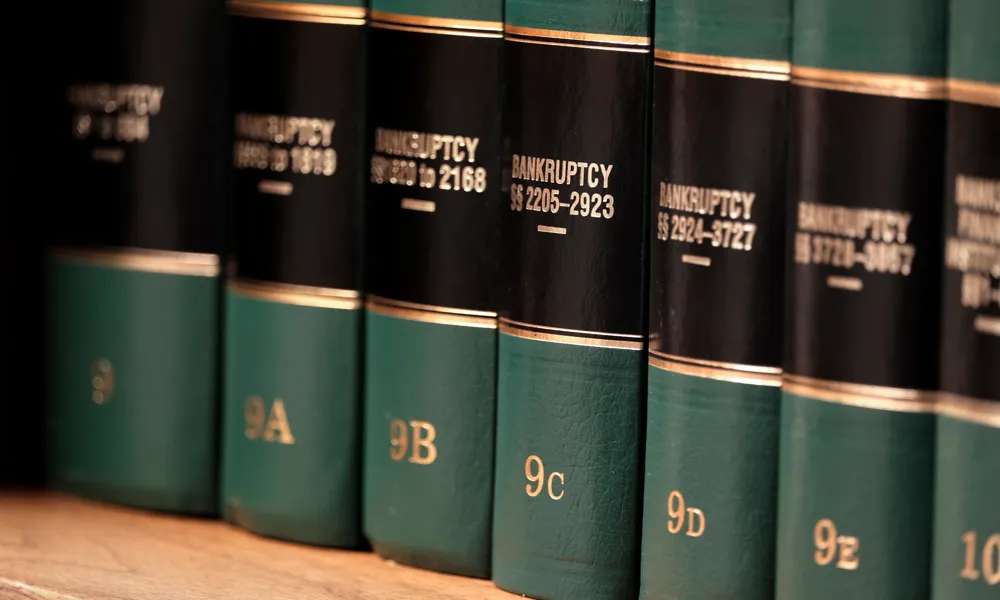Are you struggling with overwhelming debt in Nevada and seeking to be debt-free? However, you want to know how you can file bankruptcy for free. This article is meant for you; after this quick read, we hope we make filing bankruptcy affordable for your financial situation.
Table of Contents

Types Of Bankruptcy

Understanding the types of bankruptcy individuals file is crucial if you seek a cheap bankruptcy in Nevada. Below, we cover the two most common bankruptcy chapters a person will use when filing bankruptcy.
Chapter 7 Bankruptcy
What Is A Chapter 7 bankruptcy
Chapter 7 bankruptcy, commonly referred to as “liquidation bankruptcy,” is the sale of non-exempt assets to pay off debts. The Chapter 7 bankruptcy process usually takes a few months and provides debt relief for a fresh start to those drowning in unsecured debts.
Eligibility Criteria For Chapter 7
To qualify for a Chapter 7 bankruptcy in Nevada, you must pass the means test. The means test compares your income to the median income in Nevada; hence, the name means test. You are likely eligible for Chapter 7 bankruptcy if your income is below the median.
Cost Implications
There is a filing fee for Chapter 7 bankruptcy. However, if you’re facing extreme financial hardship, you may qualify for fee waivers. It’s crucial to explore the option if you seek free bankruptcy in Nevada.
Chapter 13 Bankruptcy
What Is A Chapter 13 Bankruptcy
A Chapter 13 bankruptcy is where you can create a repayment plan to settle your debts. These payment plans usually span three to five years and can give you an opportunity to get your financial life organized. Unlike Chapter 7 bankruptcy, it does not involve the selling of personal assets.
Eligibility Criteria For Chapter 13
The number one criterion for filing a Chapter 13 bankruptcy is having a steady income that can meet the payment plan standards. Additionally, Chapter 13 bankruptcy has debt limits, which means secured and unsecured debts must be below a certain amount.
Cost Implications
In Nevada, Chapter 13 bankruptcy has a filing fee of $313.00, according to the Nevada bankruptcy court. However, the Nevada bankruptcy court can allow you to pay the filing fee in installment payments.
Filing Bankruptcy In Nevada
Declaring bankruptcy in Nevada follows several steps, but these steps can alter between bankruptcy Chapters. Due to that fact, we provide below a general layout when you file for bankruptcy in Nevada.
-
Credit Counseling – This is a mandatory requirement all individuals filing for bankruptcy must undertake. Credit counseling is meant to ensure you are aware of tips on how to deal with your situation.
-
Filing A Bankruptcy Petition – Contacting a bankruptcy attorney is recommended at this stage as you must file a bankruptcy petition with the Nevada bankruptcy court.
-
Automatic Stay – Once you file the bankruptcy petition, an automatic stay is initiated. This means that all creditor actions against you, like foreclosure, repossession, or wage garnishment, are halted.
-
Appointed A Trustee – A court-appointed trustee is appointed to oversee your case. The job of the trustee is to oversee the case, schedule meetings with the creditors, and answer any questions the creditors may have about your financial state.
-
Next Step In A Chapter 7 – In a Chapter 7 bankruptcy, the next step would be the liquidation process. This would mean the sale of any non-exempt assets to erase debt.
-
Next Step In A Chapter 13 – In a Chapter 13 bankruptcy, a repayment plan will be proposed. If the payment plan is approved, it will be taken out over the agreed-upon timeframe. Most creditors will not be too harsh on the payment plan you provide.
Bankruptcy Considerations Nevada Residents Should Know
-
Exemptions – Nevada has set bankruptcy exemptions that are in place to determine what property you can keep during bankruptcy. Additionally, there are federal exemptions; both Nevada and federal exemptions are important to understand when filing for bankruptcy.
-
Means Test and Median Income – Ensure that you pass the means test when looking to file for bankruptcy.
-
Choosing Between Chapter 7 And Chapter 13 – When looking to declare bankruptcy for free or at least cheap, you should carefully consider what chapter you are going to use to file for bankruptcy.
Options To File For Bankruptcy Free In Nevada
Legal Aid Organizations
If you’re a Nevada resident with a low income, you can access free bankruptcy assistance through various legal aid organizations. Some of these organizations are:
The above organizations are there to provide legal assistance to Nevadans who cannot afford private representation. If you need debt relief but can’t afford it, contact one of the groups above to get started on a bankruptcy case.
Eligibility Requirements
Organizations that provide free or cheap legal services may come with eligibility criteria. Some common requirements include:
-
Income – Legal aid organizations will typically only provide to individuals with low incomes. This income amount is usually based on household income relative to federal poverty guidelines.
-
Financial Hardship – Applicants for these organizations will need to demonstrate that they have a genuine financial need and an inability to afford legal services.
Pro Bono Legal Services

Pro Bono legal services are legal professionals who provide legal work without charge. These attorneys can offer their legal expertise to get you through your bankruptcy case without attorney fees.
We take a part of this text to thank all voluntary lawyers as they play a crucial role in ensuring equal access to justice and legal service.
How To Find A Pro Bono Bankruptcy Attorney
If you are looking to find a pro bono Nevada bankruptcy attorney, you can look in several places:
-
Legal Aid Organizations – Some legal aid organizations in Nevada offer pro bono services. We recommend you inquire about the availability of pro bono assistance when reaching out to these programs.
-
Nevada State Bar – The State Bar of Nevada offers a list of law firms that provide pro bono legal services. This list can be found here.
-
Department of Justice – The DOJ provides a list of where you can find pro bono services in Nevada.
If you are seeking pro bono assistance, you should be prepared to provide information about your financial situation and the nature of why you are filing for bankruptcy.
Bankruptcy Court Fee Waivers
Court fee waivers are mechanisms that allow individuals with limited financial means to request relief from court fees associated with filing for bankruptcy. Court waiver ensures that debt relief is not blocked by a financial barrier.
Application Process
The application process for court fee waivers in Nevada involves the following steps:
-
Determine Eligibility – The Nevada bankruptcy court will assess eligibility for a court fee waiver based on your income.
-
Complete Forms – You can obtain and fill out Nevada fee waiver application forms here.
-
Review By Court – The court will review your application and determine whether you qualify for a fee waiver. If you are denied, you may not appeal it to a higher court.
Potential Risks

When looking for a cheap bankruptcy process, there could be potential risks when filing for bankruptcy.
Limited Resources
-
Legal Aid Capacity – Legal aid organizations and pro bono services have limitations on resources and capacity. Access to these organizations could be delayed, and you may get a less experienced attorney.
-
Complex Case – If you have a complex bankruptcy case you may find it challenging to access a bankruptcy lawyer who is equipped with the necessary skill to handle your case.
Risks With DIY Bankruptcy
We always recommend you contact a Nevada bankruptcy lawyer and avoid attempting a do-it-yourself bankruptcy, as without a bankruptcy lawyer could result in the following:
-
Incomplete Filings – A DIY bankruptcy could lead to incomplete or incorrect filings which can result in delays or additional costs.
-
Loss Of Assets – You may be unaware of Nevada exemptions without the assistance of an attorney which can cause the unnecessary loss of valuable assets in a Chapter 7 bankruptcy.
-
Inadequate Repayment Plan – Without an attorney, you may draft up an inadequate Chapter 13 repayment plan that does not align with your income restrictions.
Frequently Asked Questions (FAQ)

Can I file for bankruptcy in Nevada without incurring any costs?

While filing for bankruptcy involves certain fees, there are options available to minimize or eliminate these costs. Individuals facing financial hardship may qualify for fee waivers, and free legal aid services are accessible to those who meet specific eligibility criteria.

What types of bankruptcy are available in Nevada?

Nevada residents can file for Chapter 7 or Chapter 13 bankruptcy. Chapter 7 involves the liquidation of assets to discharge debts, while Chapter 13 allows for a reorganization and repayment plan over a specified period.

How do I determine if I’m eligible for Chapter 7 bankruptcy in Nevada?

Eligibility for Chapter 7 is assessed through the means test, comparing your income to the median income in the state. If your income falls below the median and you meet other criteria, you may qualify for Chapter 7.

Is it possible to get a court fee waiver for bankruptcy in Nevada?

Yes, individuals with limited financial means can apply for court fee waivers to alleviate or eliminate the costs associated with filing for bankruptcy. The application process involves demonstrating financial need and submitting the required documents.

What are pro bono legal services, and how can I find them?

Pro bono legal services are provided voluntarily and without charge. Individuals in Nevada can find pro bono assistance through legal aid organizations, state bar associations, law schools, and online platforms.
Read More
Related Articles







Recent Comments